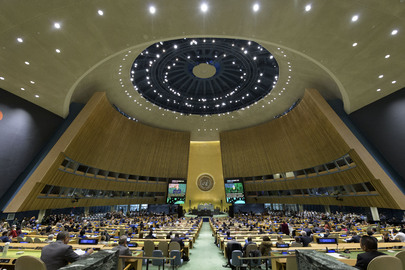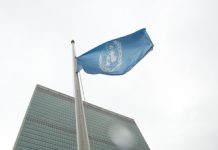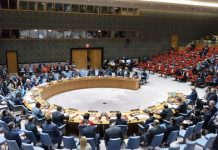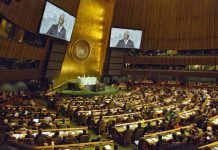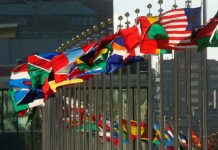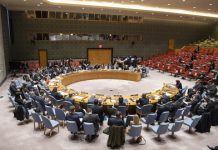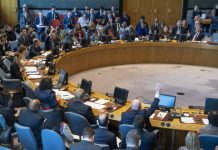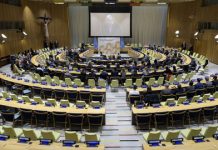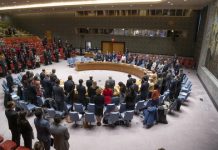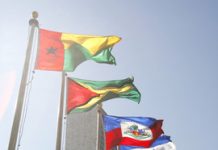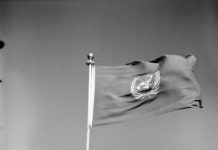DR Congo crisis must be stopped, warns UN rights chief
UN human rights chief Volker Türk on Friday expressed profound concern over the ongoing violent escalation in eastern Democratic Republic of the Congo (DRC) caused by the ongoing Rwanda-backed M23 offensive.
“If nothing is done, the worst may be yet to come, for the people of the eastern DRC, but also beyond the country’s borders,” Mr. Türk told a special session of the Human Rights Council in Geneva.
Nearly 3,000 people have been killed and 2,880 injured in attacks by the M23 and their allies in the last two weeks in the provinces of North Kivu and South Kivu.
Bintou Keita, Special Representative of the Secretary-General in the DRC and chief of the UN peacekeeping mission there, said the humanitarian situation is catastrophic:
“The decomposing bodies collected from the streets of Goma prompted WHO to warn of potential epidemics. Medical personnel are facing electricity cuts and lack fuel for their generators. They work under extremely difficult conditions, when ensuring the treatment of patients and the functioning of morgues. I again call on international community to advocate for humanitarian assistance to reach Goma immediately.”
The DRC’s mineral-rich east is home to many armed groups and has been unstable for decades. Fighting escalated in late January when majority-Tutsi M23 fighters seized control of parts of North Kivu, including areas near Goma, and advanced towards South Kivu and the eastern DRC’s second city of Bukavu.
In response to the ongoing emergency, the Human Rights Council’s 47 Members adopted a resolution establishing a fact-finding mission into abuses – staffed by the UN human rights office – to start work as quickly as possible.
UNAIDS warns US funding cuts are already impacting HIV prevention
The US pause in foreign assistance funding has created “confusion” in the vital work of community HIV prevention, despite a waiver issued for HIV and AIDS programmes, the UN agency to combat the still-deadly disease said on Friday.
The waiver allows the continuation or resumption of “life-saving humanitarian assistance” including HIV treatment.
Today, 20 million of the 30 million people living with HIV rely on medication funded by the US; they will continue to receive treatment.
Although it is expected that national governments will respond to the US announcement by supporting existing medication plans, Christine Stegling, UNAIDS Deputy Executive Director, expressed concern that they “will focus …on keeping people on treatment rather than preventing new infections”.
“We see that the biggest interruption will be on community health systems, which all of you know, have been at the centre of our success to HIV. So, for example, in Ethiopia, we have 5,000 public health worker contracts that are funded by US assistance. And all of these in all regions of Ethiopia have been terminated, and 10,000 data clerks, very important in Ethiopia. So we continue monitoring and ensuring that people are on treatment.”
The global HIV response depends on funds from the US President’s Emergency Plan for AIDS Relief (PEPFAR), which finances a staggering 70 per cent of the overall AIDS response.
Since its creation in 2003, PEPFAR has saved more than 26 million lives by investing in critical HIV prevention, treatment, care and support programmes in 55 countries, according to UNAIDS.
In Haiti, children’s bodies have become battlegrounds, warns UNICEF
Armed groups in Haiti are inflicting “unimaginable horrors” on children and turning their “bodies into battlegrounds” according to the UN Children’s Fund, UNICEF.
The agency warned on Friday that there has been a 1,000 per cent rise in sexual violence against children in the Caribbean island nation in just the last two years. It also noted that more than 85 per cent of Port-au-Prince – Haiti’s capital – is under the control of armed groups, which has created huge dangers for children.
Kidnapping for ransom is common and UNICEF helps child victims by providing a safe house for them to recover from the beatings and sexual violence that they are subjected to.
Speaking in Geneva after returning from Haiti, UNICEF spokesperson James Elder said that last year alone, child recruitment into armed groups surged by 70 per cent.
Up to half of all armed group members are children – some as young as eight years old, he said:
“Many are taken by force, others are manipulated or driven by extreme poverty. It’s a lethal cycle: children are recruited into the groups that fuel their own suffering.”
More than 500,000 children have been displaced in Haiti today and an estimated three million will require urgent humanitarian assistance this year, Mr Elder said.
Daniel Johnson, UN News.
Don’t forget that you can hear more news and interviews on the UN News website and audio hub now.
Music composed and produced by Joachim Harris. All rights reserved
Source of original article: United Nations (news.un.org). Photo credit: UN. The content of this article does not necessarily reflect the views or opinion of Global Diaspora News (www.globaldiasporanews.com).
To submit your press release: (https://www.globaldiasporanews.com/pr).
To advertise on Global Diaspora News: (www.globaldiasporanews.com/ads).
Sign up to Global Diaspora News newsletter (https://www.globaldiasporanews.com/newsletter/) to start receiving updates and opportunities directly in your email inbox for free.


